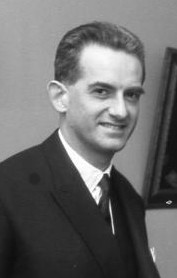| Minister of Information | |
|---|---|
| Ministre de l'information | |
| Ministry of Information | |
| Status | Abolished |
| Member of | Government |
| Reports to | Prime Minister |
| Nominator | Prime Minister |
| Appointer | President |
| Term length | No fixed term |
| Formation | 13 March 1938 |
| First holder | Ludovic-Oscar Frossard |
| Final holder | Jean-Philippe Lecat |
| Abolished | 28 May 1974 |
The Minister of Information (French : Ministre de l'information) was the leader and most senior official of the French Ministry of Information. It was a position in the Government of France from 1938 to 1974 and no longer exists.






















